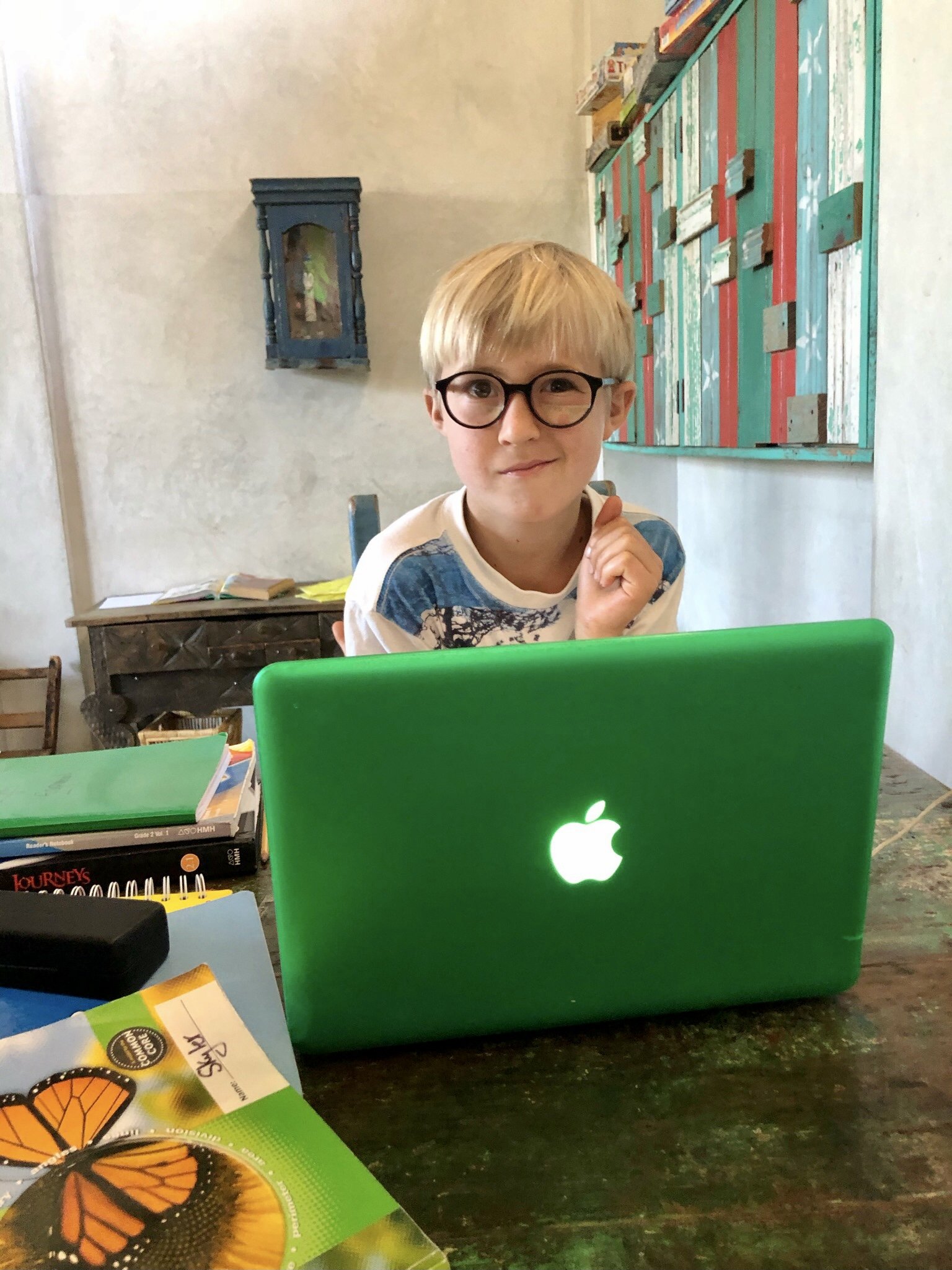The Digital Age: Access and Excess
With the rise of cell phones/Ipads/devices in general and all the possibilities they bring… I have been paying attention to what I think is the greatest risk… having too much access and therefore excess.
Anything in excess is a problem: too much food, too much alcohol, too much reading, too much exercise, too much time on our phones… And this isn’t just a problem of young people who may be more susceptible to the manipulations of social media, but us grown-ups too. Lots of research has been presented about the negative effects of screen time on the growing brain, but it effects us, adults, too! Screen time refers to the amount of time spent on the diverse activities performed online using digital devices. I know very few people who would say they are totally okay or comfortable with their device usage. All of us spend a little too much time on them. Like why do we need to take phones into the bathroom with us? Why does every moment need to be filled with something? Why can’t we sit on the toilet for a few minutes and leave our mind blank, get creative or just think?
This need to fill up our time, (even with productivity) studies show creates some “unhealthy” effects …
While mindful (and regulated) use of digital devices is linked with well-being, excessive screen time is reported to be associated with a range of negative mental health outcomes such as psychological problems, low emotional stability, and greater risk for depression or anxiety (Allen et al., 2019; Aziz Rahman et al., 2020; Ministry of Human Resource Development, 2020). Negative consequences often result when digital use is impulsive, compulsive, unregulated, or addictive (Kuss and Lopez-Fernandez, 2016).
This speaks a bit to the excess… but the excess isn’t only about filling our time, it is also impacted by the access we have to everything. It is so easy to download 10 books, we may just read a few pages, we are impatient, we feel the pressure to move on to the next… what a different feeling than going to a bookstore and spending $20 on a book, that investment of $20 means we will be more committed to our book (as well as, the time we spent going to the bookstore and choosing a book) rather than ordering a book on amazon while on the toilet.
Access: Netflix and binging… do I need to say more? Well, I will. In the old days, we watched one episode of a show we loved and needed to wait one whole week to see what would happen next. We probably watched that show with at least one other person in a shared space in the home. Now we can watch episode after episode in one night, exhausted the next morning, slightly depressed that we have already finished the series rather than savored it. We may have watched alone and not shared the experience with others. We watched on our personal devices and didn’t need to compromise and convince our housemates on what to watch together. We just do what we want to do…
Facebook/Instagram/The New York Times… I’m hardly on Facebook, Instagram gets a bit of my time, but the New York Times is a daily read. It steals my in-between moments. This scrolling has shortened our attention spans… Electronic devices are disrupting our brains and making us unable to concentrate. According to a recent study, we are spending so much time online that we are causing “acute and sustained” changes to the way our brains work.
Researchers from the universities of Oxford, Harvard, Western Australia, Manchester and King's College London have published a paper in the journal World Psychiatry, warning that increased use of the internet and "digital distractions" are leading to "decreased verbal intelligence" among children and "cognitive offloading" among adults.
One of the authors of the report says that “high levels of internet use could indeed impact on many functions of the brain”. He cites the “limitless stream of prompts and notifications from the internet” which “encourages us towards constantly holding a divided attention, which then may decrease our capacity for maintaining concentration on a task”. The picture is of an information-overloaded, attention-deficit-disordered world, with so many things beeping, flashing, and pinging that we can no longer hold one thing in our heads for any length of time.
And what kind of attention can we bring to our loved ones when we are so mentally overloaded? The next time you reach for your phone maybe it is worth thinking twice?
Are you interested in working on your personal development? Are you looking for a life coach or a life consultant? Are you feeling stagnant? Do you want to jumpstart change?
My transformational approach is a process where awareness, alignment, and action work together as catalysts to create momentum for change.
*Awareness is knowing what you genuinely want and need.
*Alignment is the symmetry between our values and our actions. It means our inner and outer worlds match.
*Action is when you are conscious that what you say, do and think are in harmony with your values.
Together we build an understanding of what you want to accomplish, and delve deeply into building awareness around any thoughts and assumptions that you may already have. To truly transform your life, I will empower you to rethink what’s possible for you.
__
Learn more about my approach to life consulting and relationship coaching here or get in touch for your free 30-minute consultation here! Don’t forget to follow along @LilyManne on social for more regular updates!


